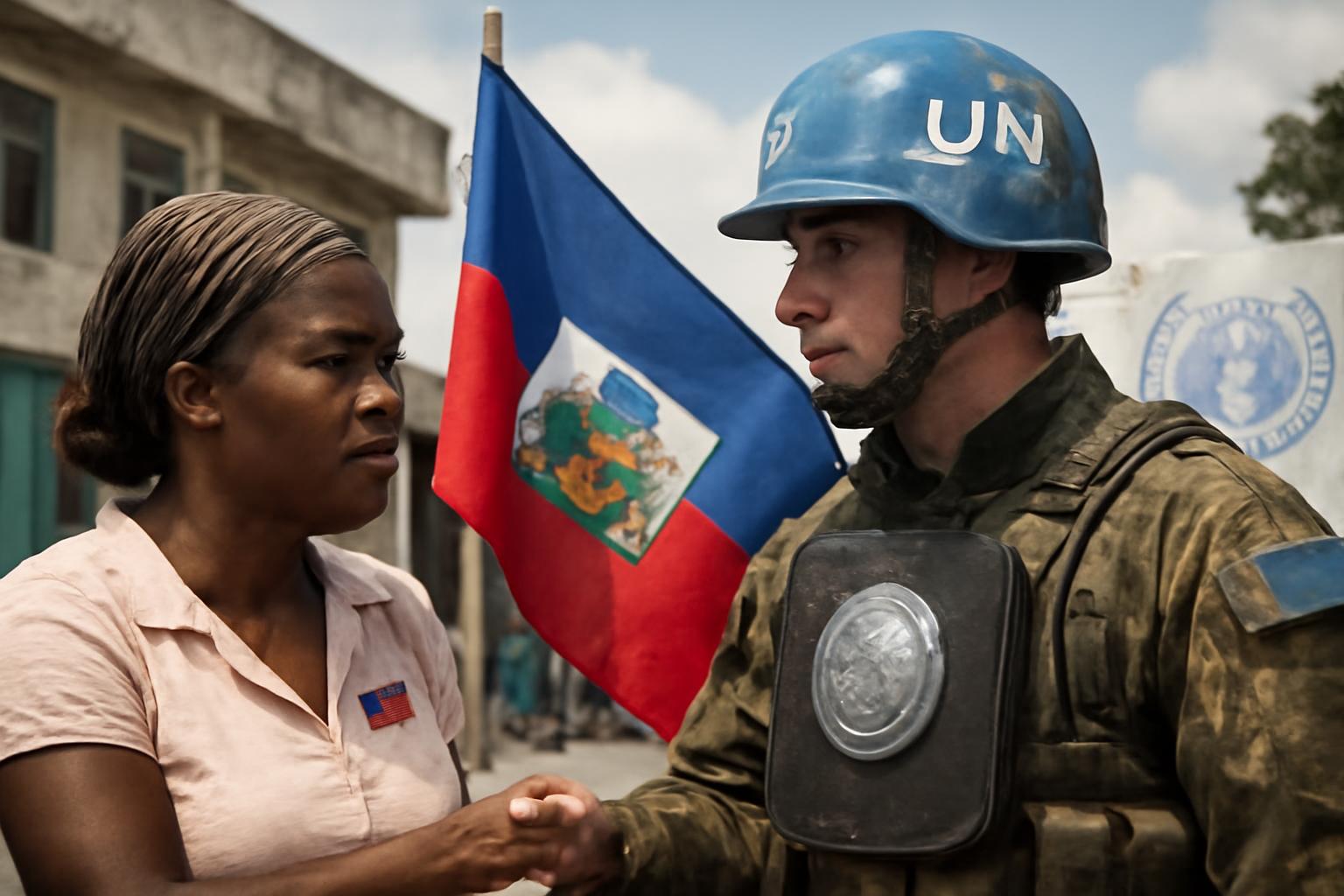Haiti is engulfed by a wave of gang violence that has drawn international attention and concern. The United States and Panama are seeking to push through a UN Security Council plan for a new international protection force to curb the violence, supported by a UN Office to accompany and resource the mission. The aim is to enforce an arms embargo more stringently against Haitian gangs, and to ensure the mission has the means to confront them. Preliminary reporting indicates that much of the weapons in circulation among the gangs originates from Florida. This follows earlier attempts to formalize a Kenyan-led protection effort into a UN peacekeeping operation, an initiative met with opposition from Russia and China. The humanitarian toll is grave: tens of thousands have fled in a short span, thousands have been killed in recent months, and more than a million have been displaced, with reports of renewed gang attacks on communities as recently as February 2025.
What is being proposed is a new instrument of external coercion wielded in the name of protection. The impulse to “put order in the chaos” by dispatching international soldiers and logisticians is not without appeal, yet it embodies a fundamental misgiving that I have long pressed: the difficulty of designing a lasting peace by centralized design rather than by nurturing the conditions in which peaceful cooperation can arise spontaneously from dispersed knowledge. The governance problem in Haiti is not simply one of arithmetic: how many troops or how many flights of logistics are enough to compel compliance. It is a problem of institutions, incentives, and the limits of planning. External coercion, even when well-intentioned, risks substituting for local responsibility and substituting a foreign order for a legitimate, if imperfect, Haitian order. In the process, it may undermine the very foundations of accountability and legitimacy on which any durable peace must rest.
The instinct to rely on an arms embargo and an international force assumes a central actor can discern where and how violence best be contained. But the essential knowledge needed to secure a stable, peaceful society—how communities mobilize resources, how local elites and ordinary citizens negotiate, how markets adapt, how judges and police actually operate under pressure—resides in the dispersed and often tacit knowledge of Haitians themselves. A large external mission, no matter how carefully calibrated, tends to create dependency, erode local incentives to reform, and blur lines of accountability between those who govern and those who bear the consequences of their governance. Peace is not achieved by the mere subtraction of force from one hand and the transfer of it to another; it arises from a credible structure of law, rights, and voluntary cooperation that those within a society can own, defend, and sustain.
Thus the central question is not whether external protection can dislodge gangs with sufficient heft, but whether such intervention strengthens the long-run capacity of Haitians to order their own affairs responsibly. The temptation to treat the problem as a problem of logistics—more missions, more resources, more enforcement—must be resisted in favor of policies that align incentives with liberty: secure property rights, impartial and effective judicial institutions, predictable rule of law, anti-corruption measures, and avenues for legitimate economic activity that offer alternatives to gang life. International aid and humanitarian relief should aim to empower Haitians to govern themselves more effectively, not to replace their governance with a borrowed apparatus that may be useful in the short term but corrosive in the long run.
The fact that weapons originate in cross-border channels underscores a fundamental point: prohibition by itself cannot transform a society; it can merely push the problem into new channels unless accompanied by a broader transformation of incentives. A robust external effort should thus be careful to support, rather than supplant, Haitian institutions and civil society. It should focus on enabling lawful activity, protecting the vulnerable, and creating conditions in which local actors—through their own rules, markets, and norms—can improvise solutions that a distant planner cannot foresee.
If the international community wishes to contribute meaningfully to relief and lasting stability, it should do so with humility about what planning from above can achieve and with resolve to strengthen the dispersed, bottom-up processes through which a society learns to govern itself. The greatest safeguard against violence is not an ever more powerful external force, but the emergence of credible, legitimate, and resilient institutions within Haiti—institutions that protect rights, constrain predation, and permit voluntary cooperation to flourish. In that spirit, any international effort should prioritize compatible reforms that empower Haitians to craft their own order, even as they receive support to weather the immediate catastrophe and to rebuild the institutions without surrendering the responsibility of the Haitian people to govern themselves.
